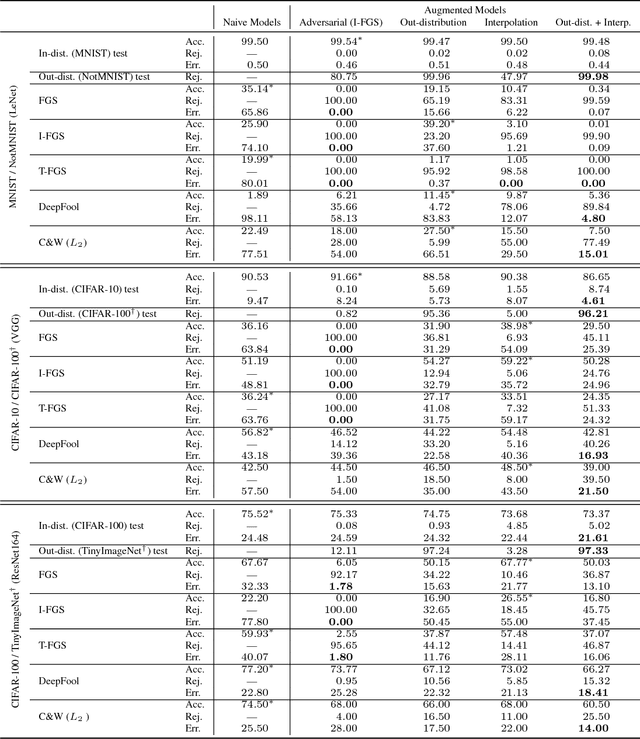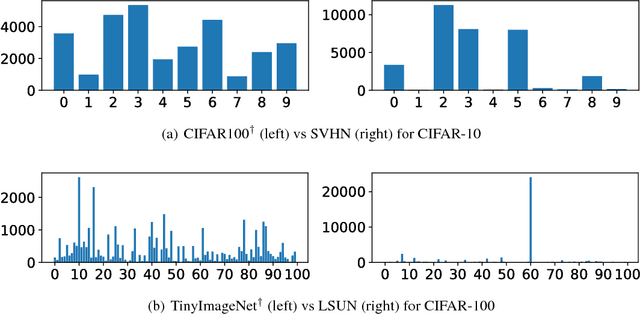Controlling Over-generalization and its Effect on Adversarial Examples Generation and Detection
Paper and Code
Oct 03, 2018



Convolutional Neural Networks (CNNs) significantly improve the state-of-the-art for many applications, especially in computer vision. However, CNNs still suffer from a tendency to confidently classify out-distribution samples from unknown classes into pre-defined known classes. Further, they are also vulnerable to adversarial examples. We are relating these two issues through the tendency of CNNs to over-generalize for areas of the input space not covered well by the training set. We show that a CNN augmented with an extra output class can act as a simple yet effective end-to-end model for controlling over-generalization. As an appropriate training set for the extra class, we introduce two resources that are computationally efficient to obtain: a representative natural out-distribution set and interpolated in-distribution samples. To help select a representative natural out-distribution set among available ones, we propose a simple measurement to assess an out-distribution set's fitness. We also demonstrate that training such an augmented CNN with representative out-distribution natural datasets and some interpolated samples allows it to better handle a wide range of unseen out-distribution samples and black-box adversarial examples without training it on any adversaries. Finally, we show that generation of white-box adversarial attacks using our proposed augmented CNN can become harder, as the attack algorithms have to get around the rejection regions when generating actual adversaries.
 Add to Chrome
Add to Chrome Add to Firefox
Add to Firefox Add to Edge
Add to Edge